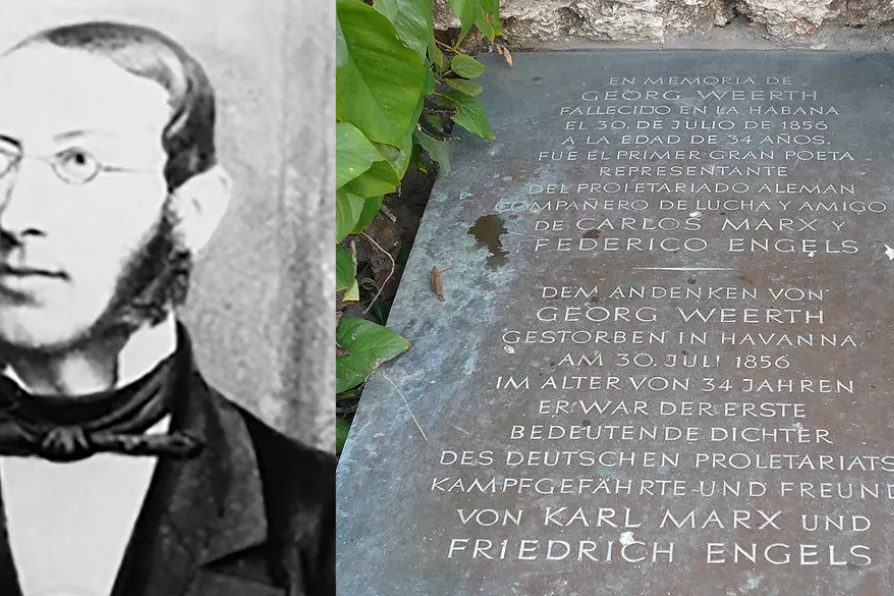SIMON PARSONS is charmed by a hilarious tender show that will open the eyes to the delights and possibilities of puppetry

 Georg Weerth and his gravestone in Havana, the inscription reads: “in memory of Georg Weerth who died in Havana on July 30 1856 aged 34. He was the first great poet representative og the German proletariat, comrade in arms and friend of Karl Marx and Friedrich Engels.”
[(L to R) Wikipedia and InZweiZeiten/Creative Commons]
Georg Weerth and his gravestone in Havana, the inscription reads: “in memory of Georg Weerth who died in Havana on July 30 1856 aged 34. He was the first great poet representative og the German proletariat, comrade in arms and friend of Karl Marx and Friedrich Engels.”
[(L to R) Wikipedia and InZweiZeiten/Creative Commons]
TOMORROW is the 100th anniversary of the birth of Georg Weerth, a German poet, writer and close collaborator of Karl Marx and Friedrich Engels.
Weerth met Engels in Manchester and became closely allied with Marx and the Chartist leaders. While in England he came to understand the misery of the working class as the flip side of enormous technical progress, and also that this class was destined to eventually overthrow capitalism.
In Weerth’s short story, The Flower Festival of English Workers, for the first time in German literature a new image of humanity emerges directly from the experience of the fighting proletariat — workers as class-conscious, fighting people with a developed aesthetic sense.

NICK MATTHEWS recalls how the ideals of socialism and the holding of goods in common have an older provenance than you might think

JOHN GREEN observes how Berlin’s transformation from socialist aspiration to imperial nostalgia mirrors Germany’s dangerous trajectory under Chancellor Merz — a BlackRock millionaire and anti-communist preparing for a new war with Russia












